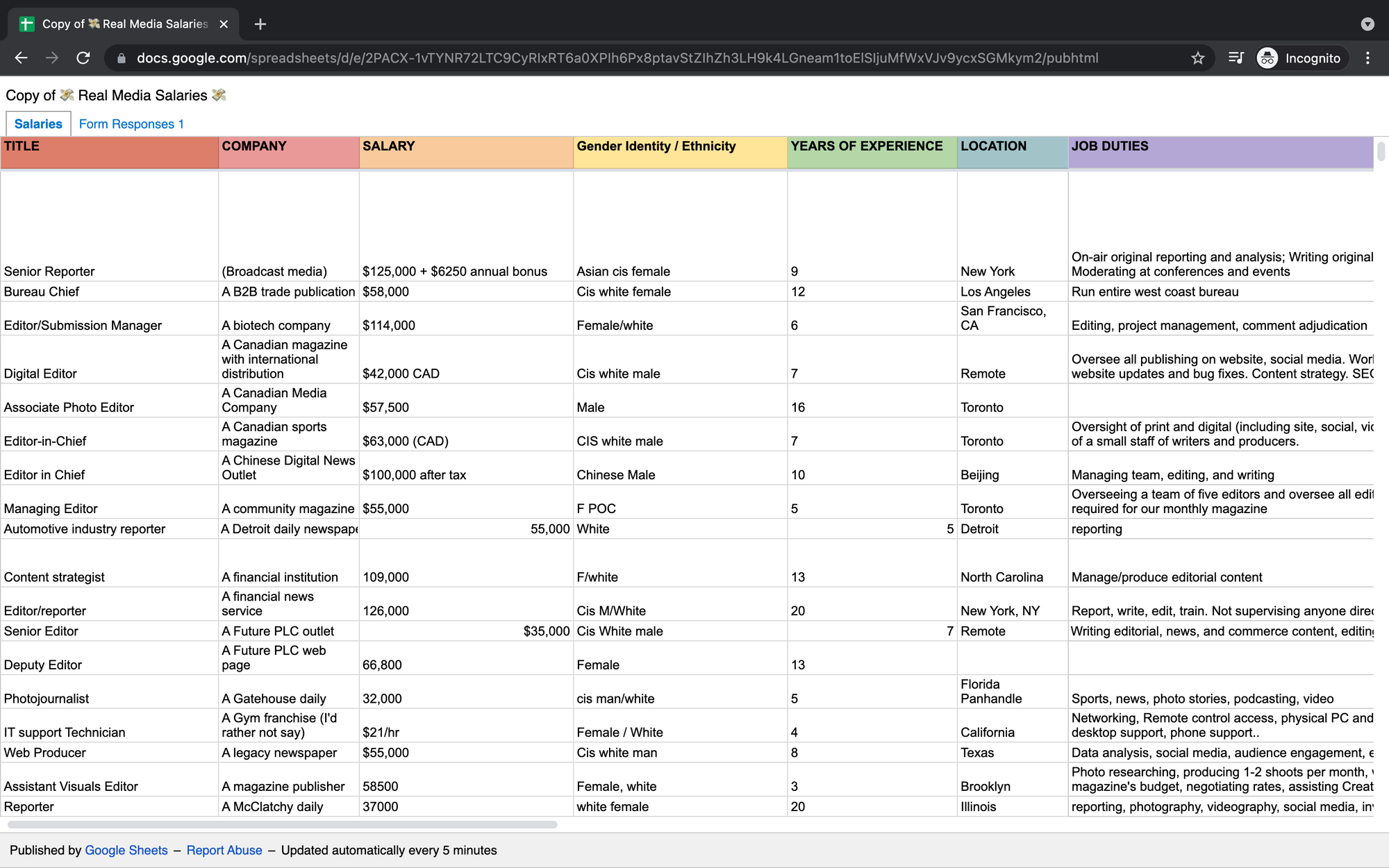The case for open salaries
Talking about money is taboo. But for many, that lack of knowledge leads to lower earnings. Here's how we can change that.

Steph Smith recently released an episode on the idea of open salaries in the marketplace: the concept that companies should publicly display how much each person or role earns.
As someone who has thought, and struggled, a lot with personal finances I wanted to share a few of my experiences that might help others.
Who you share your financial information with matters
I was the first one in my immediate family to graduate college. Then, the first to go on to graduate school.
Because of that, people made assumptions about the opportunities I had access to, both professionally and financially.
For full disclosure, I'll post below exactly what each of my full-time positions have paid because I believe the open salary movement can lead to more good than harm in the right contexts.
That being said, it can be a double-edged sword.
- I've shown all of my closest family members my exact finances (earnings, investments, spending, etc.) so that (A) they could see exactly what I was doing and (B) improve their own finances as a result.
- I've not shown other family members and close friends because they have proven to use money as a manipulation factor, so why would I want to add that to my life 🤷.
- I've shown coworkers my finances in order to help them negotiate raises, find better positions, or aim higher for themselves.
- I've also not shown people in my professional circles to avoid a plethora of negative feelings and misjudgments.
At the end of the day, I believe sharing financial information should be a personal decision. However, companies are not off the hook.
Open salaries benefit people of color
From my personal experience as a Hispanic man who has worked in mostly mixed-race settings, I can absolutely say that race impacts salary.
- It impacts the assumptions of those hiring.
- It impacts the expectations of the applicant.
Nearly everyone I knew growing up made minimum wage or near-to-it.
They worked in the service industry as mechanics, restaurant servers, gas station attendants, or church staff.
I was 18 the first time someone told me they made over six figures and it was a teacher I was close to. She'd been in the position for over 20 years and had capped out her earnings, but I had no idea that was even possible for people other than CEOs.
My grandparents never finished high school in Puerto Rico. When my parents came to the states and graduated, that was the highest achievement anyone had reached. They worked hard to buy their first home, but that was the pinnacle of prosperity.
I say all this because I grew up with the bar of financial success being incredibly low by many standards.
As a generality, people of color tend to have fewer models of financial success. It's not meant to be an excuse, just a fact. We're playing with different cards.
Open salaries offer those of us without proper context on what we're worth and our earning potential a much-needed guideline. It gives us ammo to negotiate, leverage, and orient our career goals towards.
Without it, we're in the dark — which is one reason why men and women of color are still paid 10-20% less than their white counterparts.
What I've earned
One of the experiments (e.g., small bets) I've considered is publishing a monthly income report to help others with this exact problem: knowing what to expect for certain careers, seeing realistic earnings from online activities, putting a face to a number AND seeing the story behind it.
With that, here's what my salaries have been for my 3 full-time positions:
- Admissions Representative: $35,000 per year with full benefits.
- Learning Commons Supervisor: $59,000 - $62,000 with full benefits.
- Staff Writer: $70,000 with alternative benefits.
Plus, over the last 5 years, I've been able to build additional streams of income through consulting and content creation. These fluctuate but are usually in the $1,000 - $3,000 per month range.
For greater context, here's a Google Sheet named Real Media Salaries which includes hundreds of entries from across the industry and lists: title, company, salary, gender identity, years of experience, and location.
The range for Staff Writer positions across companies and locations ranges from $36,000 - $68,000, with Senior Staff Writers earning $45,000 - $85,000.

Takeaways
- If you're comfortable doing so, share your salary information with people who could benefit (e.g., family members, coworkers, community members).
- For hiring managers without set salary guidelines like those available in larger organizations, make sure you are doing the appropriate research and context when setting a number. Think position, not person.
- For applicants, expand your pool of available examples every chance you get. Small things like a slightly different title or a single additional skill could increase your base by tens of thousands of dollars.
Although companies may never fully share the open salary philosophy, that doesn't mean individuals can't step up and help one another earn what they deserve.
